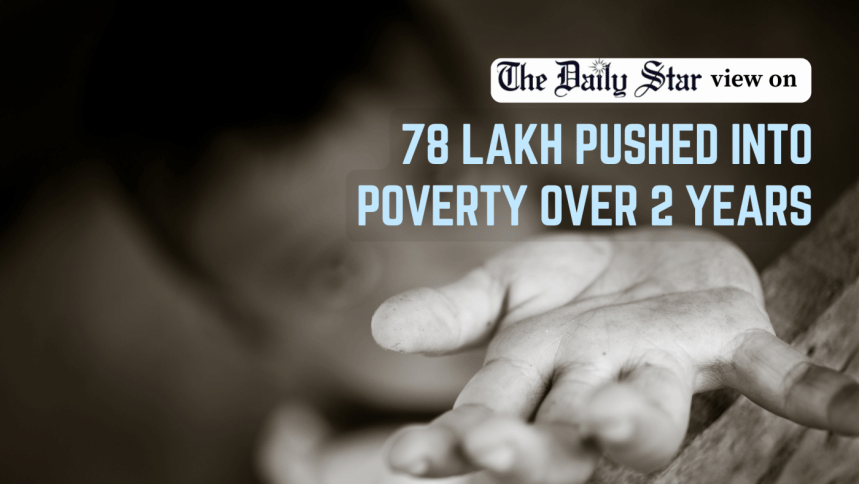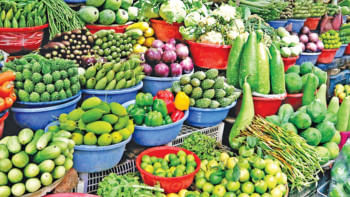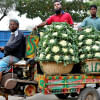Inflation is pushing us to the brink

A recent study has revealed a rather distressing picture of inflation's impact on the lives of ordinary people. The study, conducted by the Research and Policy Integration for Development (RAPID), found that high inflation over the last two years has pushed at least 78 lakh people into poverty, with 38 lakh of them slipping into extreme poverty. A further one crore people are at risk of falling below the poverty line if the current inflationary pressure continues. This does not bode well for a country undergoing a massive political transition, underscoring the need for a comprehensive action plan to bring the situation under control as soon as possible.
Bangladesh has been battling high inflation for more than two years now, a situation caused by external shocks but made more severe and persistent due to delayed and shortsighted decision-making—such as excessive money printing by the previous regime, etc. Overall inflation has remained above nine percent since March 2023. In November this year, inflation hit a staggering 11.38 percent, while food inflation soared to 13.8 percent. The persistently high prices of essentials have been causing financial distress for citizens, a majority of whom have yet to recover from the shock of reduced income caused by the pandemic and other factors, including natural disasters. As a result, many households have been forced to cut back on basic needs such as education and healthcare, and even on daily food intake. According to the Bangladesh Bureau of Statistics (BBS), around 3.77 crore people experienced food insecurity in 2023.
We need prompt, effective measures that can support the poor as well as help curb inflation. For immediate relief, social protection programmes must be beefed up to provide support to those who urgently need it. This should include cash support and/or provision of basic essentials at subsidised rates. For a long-term remedy, the government must take a multipronged approach. Public spending, for example, has to be adjusted to prevent wastage, while government resources should be used more effectively to support social protection programmes as well as to create jobs for those suffering due to reduced income opportunities. Simultaneously, the government must employ measures to complement its ongoing efforts to curb inflation, such as strengthening market management to prevent price manipulation and monitoring supply chains to stop extortion.
The interim administration has a mammoth task ahead. To deliver on its promises, including stabilising the economy, it must make prudent and timely decisions to bring the raging inflation under control. This is also vital for a smooth political transition.


 For all latest news, follow The Daily Star's Google News channel.
For all latest news, follow The Daily Star's Google News channel. 










Comments